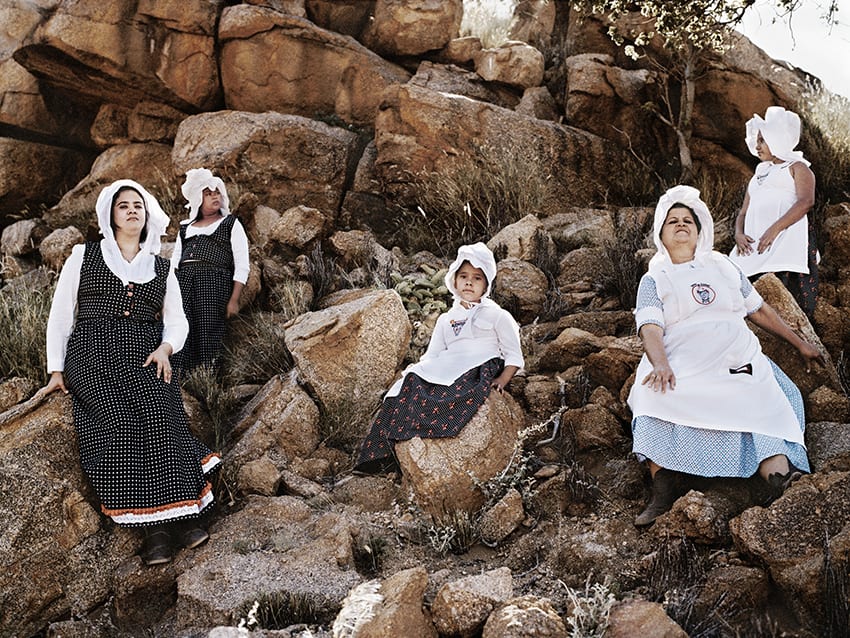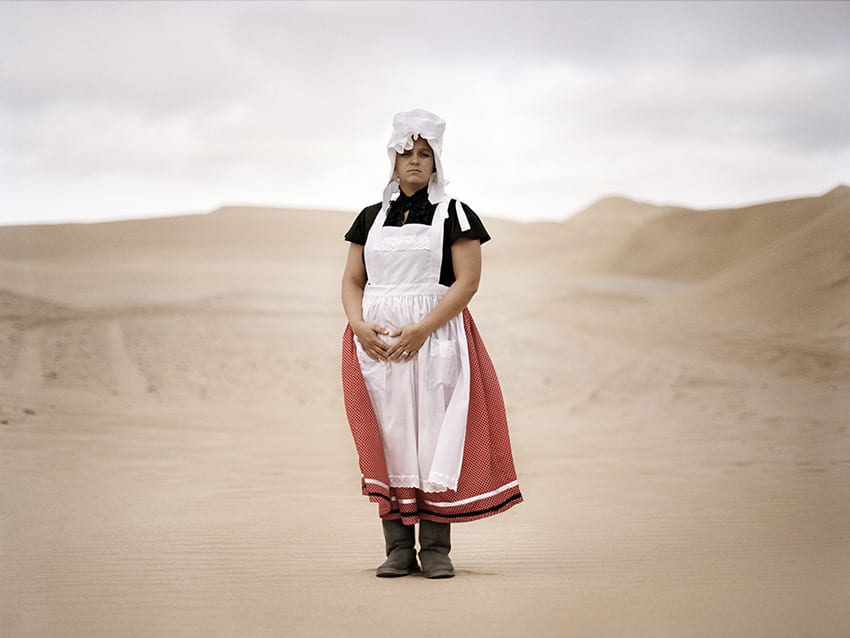Deep in Namibia’s Kalahari dessert lives an ethnic group of European decent called Rehoboth Basters. The Basters are the offspring of European settlers and their indigenous Khoisan slaves during the colonial period in the 18th century. During the colonization of South Africa, the Basters became a stigmatized group. The Europeans considered them superior to the black population, but they were still too black to be treated as true Europeans. As a result, the Basters moved northwards into the empty farmlands of central Namibia, where they still live today.
The Basters are a proud and strong ethnic group who respect their history and their elders. They are tradition-minded, and they stick together, especially when it comes to protecting their family and community. In part thanks to these qualities, they have managed to survive apartheid and two world wars.
One hundred and one years after the Rehoboth Basters rose up against the Germans that colonized them, the photo series “Basterland“ takes up the task of providing a multifaceted view of the contemporary life of this ethnic group still living in Namibia today. These images reveal tension-laden contradictions; in particular, the confrontation between global standardization and traditional regional structures that have been upheld over generations and defended against external, antagonistic forces.

View the full reportage here.

